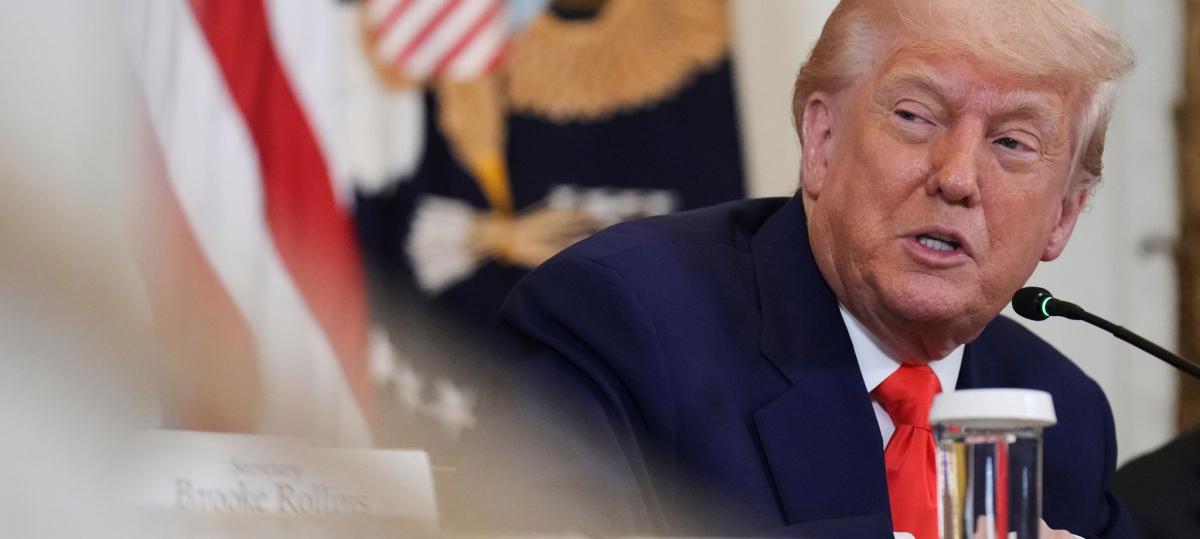Trump grants the EU in the event of threatened new tariffs

US President Donald Trump wants the introduction of the new tariffs he announced for the beginning of June to imports from the EU Move by a month. The start of the planned additional import fees of 50 percent will be postponed to July 9th, said Trump After a conversation with EU Commission President Ursula von der Leyen. She promised him that necessary conversations would start quickly, Trump wrote on his online platform Truth Social.
Immediately before Trump’s announcement, Leyen wrote on platform X, the European Union and the United States shared one of the most important and closest trade relationships worldwide. « Europe is ready to advance talks quickly and determined, » she continued. It takes time until 9th. The date marks the process of a delay for other tariffs announced by Trump in April.
This three -month time window should be used for negotiations. At that time, the EU had also announced that it was initially exposed to the planned counter-tariffs on US products for 90 days.
Trump’s surprising customs announcement before the weekend
On Friday, however, Trump surprisingly threatened the EU with punitive tariffs of 50 percent from June 1 – and was not very compromising. « I’m not looking for a deal, » said Trump in the White House. He justified the drastic step with stuck negotiations. European products, such as from Germany, would probably be significantly more expensive in the United States if the high punitive tariffs should actually occur.
Despite Trump’s assertions, however, it seemed unclear whether the new penalty fees would come into force on imports from the EU as announced with such a short period of time. Trump has regularly threatened with high tariffs in the past – and then carried out a U -turn. Sometimes the Republican probably only uses his customs threats as a negotiating tactic.
Possible suggestions for setting up the customs dispute
In order to defuse the current trade dispute, the EU has already offered the United States an agreement to mutual cancellation of all tariffs on industrial goods. So far, the Trump government has not responded to this. In addition to customs deals, new agreements are an option. According to the EU Commission, the EU and Trump could, for example, conclude a new deal to expand American exports of liquefied gas (LNG). It would also be possible to import more military technology and agricultural goods in order to reduce the US trade deficit with the EU.
The EU sees Trump’s tariffs as not justified and incompatible with the rules of the World Trade Organization (WTO). She emphasizes that she will introduce decisive measures against US tariffs should the negotiations fail. This should include against tariffs. (dpa)





/s3/static.nrc.nl/images/gn4/stripped/data132799090-9b3180.jpg)

